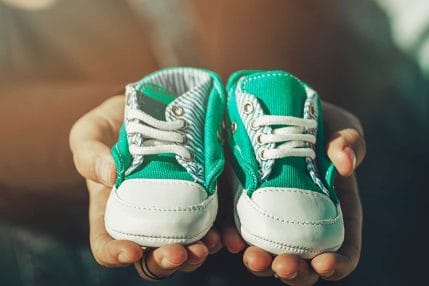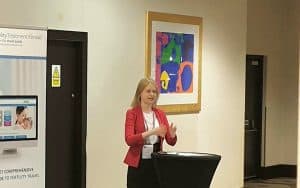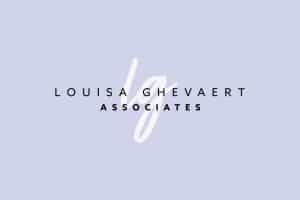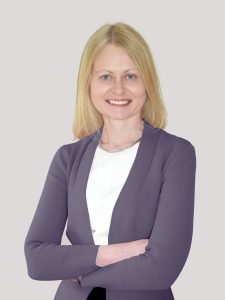20 February 2025
In a recently published family law case In the Matter of D [2023] EWFC 333, His Honour Judge Jonathan Furness KC took the unusual step to publicly name a serial sperm donor and warn the public and vulnerable women seeking to get pregnant of the dangers of unregulated private sperm donation. This followed a highly contested 2-year legal battle, described as a ‘nightmare’ and ‘horror story’, between a female same-sex couple and a prolific sperm donor who applied to court to be named on the child’s birth certificate, obtain parental responsibility and contact with the child.
Background
The female same-sex couple (“B” and “C”) met in 2018 and married in 2021. B was pregnant at the time of their marriage with their child (“D”). Very sadly, they had separated (but not yet divorced) by the time of the Final Hearing in November 2023 when B was aged 30 and C was aged 28 years old (the respondents in the proceedings). They reported that the breakdown of their relationship was attributed in part to the stress caused by the actions of the sperm donor who advertised under the pseudonym ‘Joe Donor’. C acted as a mother throughout D’s life, with shared arrangements for D’s care between B and C following their separation. B applied for ‘special measures’ during the proceedings as she suffered with stress related small seizures due to emotional difficulties (anxiety, depression and suicidal thoughts made worse by the proceedings).
The sperm donor (“A”) was a US citizen who was resident in the North East of England. He was aged 52 years old and he advertised as a sperm donor on social media (saying that any contact with the child was for the mother to decide), as well as appearing on television and in newspaper articles. In an article in the Daily Mail on 7 October 2023, he claimed to have fathered 170 children and said he had no intention of stopping. He applied to court for a child arrangements order and a declaration of parentage to obtain parental responsibility, change D’s name, be named on D’s birth certificate and obtain contact with D. A also made further applications during the proceedings, which included matters related to immigration issues with the Home Office.
As a result of A’s court applications, the non-birth mother C applied for parental responsibility for D and an order under s8 of the Children Act 1989 to formalise her and B’s shared care of D. In addition, the Guardian made applications to court for an order under s91(14) of the Children Act 1989 to prevent A from making further court applications without the Court’s permission and for the Judgment in this case to be reported and for A to be named. The Guardian argued that it was important that the public should be made aware of the dangers of unofficial sperm donation.
Findings of Fact at the Fact Finding Hearing
At the fact finding hearing, His Honour Judge Jonathan Furness KC made a number of important findings, with particularly damning findings about the sperm donor (“A”):
- The circumstances of conception were by syringe and not through secret sex between A and B in the back of a car without C’s knowledge (as A had alleged).
- The lesbian couple (B and C) intended at the time of conception that A would have no future involvement with their child until such time (if ever) that their child asked about their paternity and wished to see him.
- A’s principle motivation for bringing his court applications was to support his immigration position in the UK. D was one of two children named in his immigration application which was based on a right to family life. A had come to the UK just before the first Covid lockdown and if he returned to the USA he was at risk of being arrested due to arrears of periodical payments.
- The registration of D’s birth (which named C as second parent) was done incorrectly due to an innocent error of the Registrar (and not the result of collusion between the Registrar with B and C as A suggested) and had been amended.
- That A’s conduct during the proceedings showed that “in reality he is a man who seeks to control, women and children appear to be almost a commodity to him as he sets about increasing the number of his children around the globe – China, USA, Argentina, Australia and UK to name just some of the countries where he has fathered children”.
- That A “has a complete absence of sensitivity or empathy, is wholly self centered and will stop at nothing to obtain what he wants”.
- That A suggested that C should not be referred to as “mother” and should instead be called “aunt” and that “he has no comprehension how offensive and dismissive that is of her and the role that she has played and will continue to play in D’s life”.
- That A “does not recognize any connection between the stress of these proceedings and B’s mental health struggles through 2023 even though it was her non-epileptic seizures the night and morning before she was to give evidence that delayed the fact finding hearing and resulted in her solicitor calling for an ambulance”.
- That B was “a thoughtful and restrained witness” who “had become rather entrenched”… and “cannot countenance any dealing with A or with him being in D’s life”.
- That C was a “balanced witness” and “the very clear message that came from her evidence was that she had always wanted to be a full part of D’s life, she wanted to be recognised as a parent”.
Legal Rulings
The Judge went on to make a series of legal rulings at the Final Hearing. He made a child arrangements order on a ‘live with basis’ for the shared care of D between B and C. The Judge also made a separate parental responsibility order in favour of C so that she can share in important decision making for D and access information about independently.
His Honour Judge Jonathan Furness KC refused A’s application for D’s name to be changed. D’s name had been chosen by B and C, who were married at the time, and there was no suggestion at the time that A would be involved in that decision. D’s given names were family names from each of B and C and D’s surname was the same as B and C when they married. He ruled there was no justification for D’s surname to be changed. A’s proposal that his surname should be used would mean that D had a different surname from both B and C who are his primary carers and attachment figures. The Judge went on to say that A was “motivated by ownership and perceived, and rather old-fashioned, entitlement, rather than looking at the welfare of D”.
The Judge also refused A’s application for an order to spend time with D on a Saturday for 3 hours and Sunday for 2 hours one weekend a month, increasing to overnight contact within a year. A had only met D once when he was a few weeks old, As such, A was “a stranger to D”. He ruled that the risk of harm to D was too great because of the character and mindset of A. The Judge went on to say that in not making an order in favour of A for direct contact this does infringe A’s Article 8 rights but “such an infringement [is necessary] in ensuring D’s rights to family life with B and C, the primary caregivers. are not adversely affected”. Instead he ordered indirect contact by way of an annual updating letter from B and C to A and an annual card or letter from A which would be retained for D when D was old enough to understand who these were from.
His Honour Judge Jonathan Furness KC also refused A’s application for parental responsibility for D due to substantial concerns that A would misuse this. He ruled that it was not in D’s best interests for A to have parental responsibility as “A would use parental responsibility to question decisions and demand that he be heard even though his role, without direct contact, would be very limited”.
A sought a declaration of parentage and for D’s birth certificate to be amended to include his name. B and C accepted that A is D’s father but they opposed the grant of a declaration of parentage which would lead to D’s birth certificate being amended to add A’s name. The Judge found that B and C would inform D in due course about his parentage and so “the presence of A’s name on his amended birth certificate has no positive benefit, whereas given my findings about A’s motivation, character and his likely misuse of parental responsibility there is every prospect that A would also misuse having his name on the birth certificate”. The Judge went on to refuse to hear the application.
His Honour Judge Jonathan Furness KC also determined the application by the Guardian for an order under s91(14) of the Children Act 1989. The Judge made that order preventing A from making further applications without the permission of the court saying “The making of a further application would have no merit and, in my judgment, would amount to a campaign of abuse/control. I prevent A making another application for a declaration of parentage without permission until D’s 16th birthday”.
Lastly, His Honour Judge Jonathan Furness KC granted the Guardian’s application that the Judgment should be published and that A should be named. Both B and C supported the publication of the Judgment. C said that “the last two years have been a ‘nightmare’ or absolute ‘horror story” and people need to know of the risks”. A opposed publication of his name or his pseudonym. The Judge stated:
“On my findings A is a sperm donor who has advertised his services on the basis that he will allow the mother to make decisions about whether he sees the child and yet in this case he has ignored that position and pursues contact, parental responsibility, a declaration of parentage and a change of name for over 2 years in a manner which is rightly described by C as a ‘nightmare’. The public, and vulnerable women seeking to get pregnant, should know that is the case and they risk a similar ‘horror story’. There is a clear public interest in naming A as ‘Joe Donor'”.
His Honour Judge Jonathan Furness KC went on to say:
“However, the consequences of naming A as ‘Joe Donor’ has the consequence of exposing his real name too. In the articles in newspapers and his television appearances he generally uses his pseudonym. There is one exception, to which I was directed, which is an article in The Times newspaper in August 2022 in which both names are mentioned. It is available online if one is a Times reader or if one obtains a free trial for a month and a simple search on Google will provide A’s name although clicking the link will then require some payment or commitment to the free trial. Thus, naming A as Joe Donor will in all likelihood lead to his real name being identified too by the most rudimentary of searches.
…“I am satisfied that there is a public interest in naming A as Joe Donor in order to protect women from the potential consequences of unregulated sperm donorship, generally, but also from Joe Donor himself. The consequence of that decision is that A will be identified by name because of the article in the Times to which A presumably agreed. He has put his own name into the community and therefore exposed his children to the risks which he now seeks to prevent. He is seeking to protect Article 8 rights of privacy which he himself has allowed to be lost. It is perhaps another example of him taking what he himself described in the course of the case as a ‘litigation position’.
I therefore intend to publish this judgment and to name A as Robert Charles Albon who offers sperm donation under the pseudonym Joe Donor. I am satisfied that it is in the public interest to do so as he is a man who intends to continue donating sperm and vulnerable women who are interested in such services should fully understand the risks of becoming involved with him. Naming him does infringe his Article 8 rights to privacy and family life but he himself has chosen to diminish that protection by engaging with the Press in order to advertise his services. Any infringement of those rights is in my Judgment legitimate, necessary and proportionate in order to protect the rights and freedoms of others.”
Specialist Fertility & Family Law
This case palpably shows the real life risks and complex legal issues that can arise with privately arranged sperm donation. It can result in all manner of challenging legal issues about legal parenthood and status, birth registration, parental responsibility, the care and upbringing and best interests of the donor conceived child.
Investing in specialist fertility and family law strategies from the outset of family building arrangements enables effective approaches to donor conception and family life. They identify and manage a range of legal and practical issues associated with sperm donation to help maximise successful outcomes. In doing so, they can address:
- Complex personal and family situations.
- Conception by private sperm donation.
- Regulated sperm donation at a licensed fertility clinic.
- Assisted conception with a known sperm donor, anonymous/identity-release donor or co-parent (e.g. legal parentage, parental rights, birth registration, financial responsibility, risks in practice and dispute mitigation etc).
- Donor conception issues/disputes (e.g. concerning formal DNA/paternity testing, direct-to-consumer genetic testing, fertility fraud, biological and legal parentage and birth certificates).
- Care and upbringing of children following a dispute with a donor, co-parent, an ex-partner or parent (e.g. contact, residence, financial arrangements, parental responsibility, specific issue or prohibited steps).
- Intra-family egg or sperm donation.
- Donor conception and issues arising from impaired fertility/infertility, cancer diagnosis/illness, unsuccessful conception attempts, gender transition, change in personal circumstances, age and later-life parenthood.
- Posthumous conception with the eggs, sperm and embryos of a deceased loved one in fertility treatment with donor conception/surrogacy (e.g. due to illness or accident).
- Legal and wider aspects of international surrogacy or a UK surrogacy arrangement and donor conception.
- Issues with importing frozen gametes/embryos into the UK for fertility treatment and surrogacy (e.g. due to anonymous and commercially obtained donor gametes/embryos which engage UK public policy restrictions).
- Issues exporting donor gametes/embryos abroad for fertility treatment and surrogacy (e.g. consent and storage term difficulties).
- Expert witness fertility, surrogacy and donor conception law services.
Do you need a fertility or family lawyer for help with sperm donation, a paternity dispute, obtaining and exercising parental responsibility, bringing or defending a child arrangements order or expert help with an application for a Declaration of Parentage to confirm legal or biological parentage and resolve issues with birth registration? If you would like to discuss your situation or you would like specialist legal advice contact Louisa Ghevaert by email louisa@louisaghevaertassociates.co.uk or by telephone +44 (0)20 7965 8399.
Images: Louisa Ghevaert, CEO and Founder Louisa Ghevaert Associates
To find out more about Louisa Ghevaert click here.







